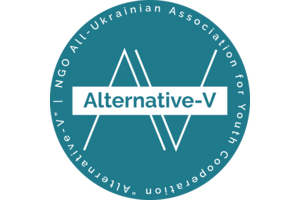Food waste
Food waste is a sensitive issue when cooking for a large number of people at once. In this section, we will discuss how to reduce food waste and manage it effectively.
How to reduce?
The best way to fight food waste is prevention. One of the factors directly related to food waste is grocery management. This depends on how often you do it, the budget you allocate to it, and the people responsible for the task.
Frequency
The frequency of grocery shopping depends on the location of your camp and the time you plan to dedicate to it. If your camp is in a remote area with few nearby stores, you will need to plan ahead for several days of shopping. This also applies when you have limited time allocated for grocery shopping during your camp.
When shopping in advance, there is a tendency to buy too much and products that will not be used. This is understandable, as we don't want our dear volunteers to go hungry. Therefore, it is crucial to be mindful of what you will consume and plan accordingly.
Planning ahead means being prepared and efficient. To be able to shop well and have enough (but not too much) food for several days, it is essential to have recipe ideas, knowledge of quantities, and awareness of specific dietary needs.
It will be important to stay connected with your group of volunteers to gather certain information. One piece of advice is to reach out to your volunteers before the camp, for example via WhatsApp, and ask about their dietary preferences. You can collect responses in the form of a Google Form questionnaire. This way you can learn more about what they like to eat for different meals and avoid buying products that no one will consume.
you allocate to it, and the people responsible for the task.
Budget
The grocery management also depends on your budget. It is very tempting to buy in bulk, especially during promotions. The key is to find a balance between overconsumption and the money you have. Would it be more cost-effective to buy 5 salads at €5 each or 7 salads at €4 each, knowing that the planned recipe requires only 5? It will be up to you to assess whether you can or cannot use the purchased food and adapt based on what meals you have already planned.
you allocate to it, and the people responsible for the task.
Grocery shopping team
Depending on your task distribution, you may delegate the responsibility of grocery shopping to volunteers. If that's the case, it's important to consider that a foreign volunteer may not be familiar with all the brands and products in the store in the country they are in.
Those not in charge may also not be familiar with the products. Feel free to communicate with them about the right packaging and labels to avoid picking up a product that won't be used. You can also consider forming a grocery shopping team with someone who speaks the language of the country and foreign volunteers.
If a person couldn't find the right product or it was no longer available, making it impossible to follow the recipe?
Be flexible! Transform the basic recipe into something else.
How to manage?
Congratulations on doing your best to minimize food waste! Despite your efforts, it's inevitable that food waste will still be present. During the camp, you will likely face the need to dispose of food leftovers or kitchen waste resulting from meal preparation.
In this context, let's focus on managing this waste and how to dispose of it properly. Where should you throw it, and what are the best practices to minimize its impact on the environment?
It's important to note that each country has its own way of sorting waste. Some countries have dedicated bins for organic waste, while others may not emphasize this practice and opt for a single bin.
The easiest way to know is to check directly with your host organization to learn about the specifics of waste sorting in the country where you are doing your workcamp. Should you buy specific bags? Is there a designated area for waste disposal? …are some questions you might ask.
Furthermore, if you wish to directly utilize your organic waste, an interesting alternative is to create compost that can be used in a community garden or permaculture site.
See more details about permaculture also here.
You can also take the initiative to contact farms to see if they would be interested in your waste, for example, to feed their animals such as pigs, chickens, etc.













